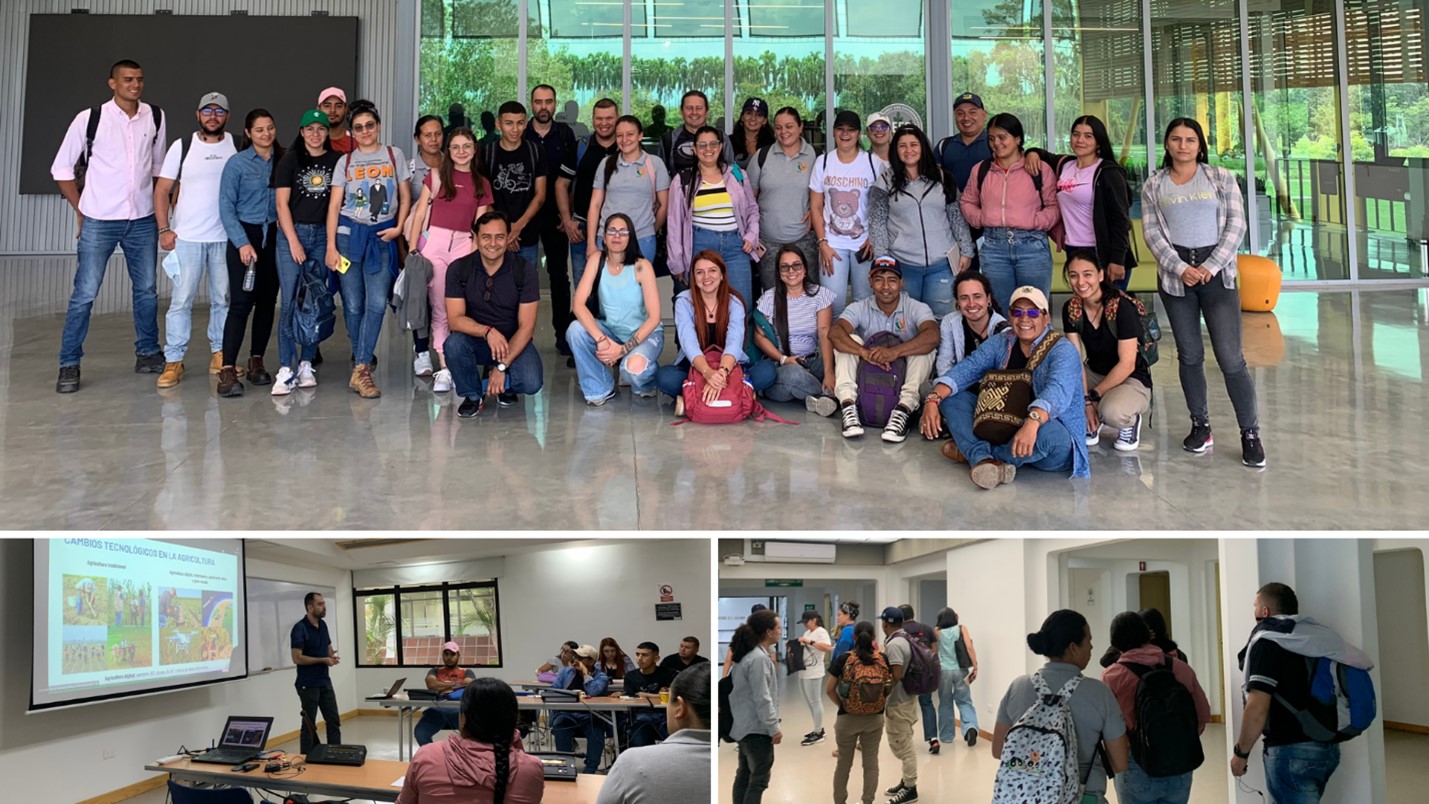The small-scale agriculture digitalization project trained nine communities on issues of soil moisture management and the use of digital technologies.

By Luis A. Muñoz, Daniela Salas Betancourt, Oscar H. Estrada and Oriana M. Gómez.
The workshops led by the team in charge of the project were carried out both with students of technical, technological, undergraduate and master's degrees related to the agricultural sector, as well as with small and medium producers in some areas of Colombia, Honduras and Nicaragua.
The objective of these activities was to analyze in a participatory way, the relationship between soil characteristics using the RASTA practical guide for the characterization of soil and terrain, moisture and related management practices, to achieve optimal crop development. and show how the technology developed in the Fontagro project “Digitalization of small-scale agriculture” can improve crop yields by monitoring soil moisture.
For example, in Nicaragua, farmers from the Buculmay Cooperative in Jinotega and the COMPARE Cooperative in Estelí received this type of training. In addition, those producers who installed sensors on their farms received the corresponding results.

For their part, farmers in Honduras began to become familiar with the technology and understand the type of information it provides and its various benefits, such as saving water by determining the behavior of soil moisture in their crops. In addition to other savings in fuel used for pumping and labor for unnecessary irrigation.

Undergraduate students in agronomy, master's in agribusiness, and members of the Zamorano University soil club received information on the progress of the project. This allowed them to broaden their approach and understanding of the research processes for the digital transformation of small and medium-sized agriculture. In addition, they were given the opportunity to contribute with their contributions, questions and suggestions to improve the technological package developed in the project.

In Colombia, with the support of Visualiti SAS, the company responsible for the development of the digital device, training was provided on the components, operation, use and care of the sensor, with the aim of strengthening the knowledge of producers on the management of technologies. developed for agriculture.

Likewise, with the communities of the villages of San Antonio and Los Cerrillos in the department of Cauca, in Colombia, topics such as soil textures, the importance of soil moisture for plants, the characteristics of the different types of of texture and structure of the soils, and the factors that determine the availability of water in the soils, including precipitation and scenarios of excess or deficit of humidity.
The producer community was also trained in the use of the technology developed and the importance of its implementation for adaptation to climate variability and change scenarios was highlighted, with the support of the sensor's user manual. In the same way, the importance of knowing the soil texture of each zone was addressed to obtain useful information in relation to soil moisture and possible crop management practices that can be carried out to maintain optimal levels of productivity and quality.
On the other hand, two groups of students from the Corporación Universitaria Santa Rosa de Cabal UNISARC visited the facilities of the Alianza de Bioversity and CIAT campus in Palmira and received training in the new methodologies for the design of digital tools such as the design centered on the people at the same time as they learned from the research process behind the soil moisture sensor. Showing its main characteristics, its way of use and the benefits it brings to small and medium-scale agriculture.

The family farming producers of the municipality of Jamundí, located in Valle del Cauca in Colombia, are another strengthened community after their visit to the Alianza de Bioversity and CIAT campus facilities in Palmira where they were discussing and learning about the importance of soil moisture and the different management practices that can be carried out to maintain it at optimal levels. They also got to know the humidity sensor developed in the project, a space that allowed them to share different perspectives on technology in the field and publicize the proposed robust, low-cost, and highly usable solution.

This is how the "Digitalization of small-scale agriculture" project has addressed key issues in research on digital technologies for agriculture, characterization of soil textures, the importance of soil moisture in agriculture, and has benefited more of 750 people from various communities and areas of knowledge, presented the technological solution resulting from AgTech research and development in the countries where it focused its efforts.




